Deanna Troi And Spock Have An Unexpected Star Trek Connection
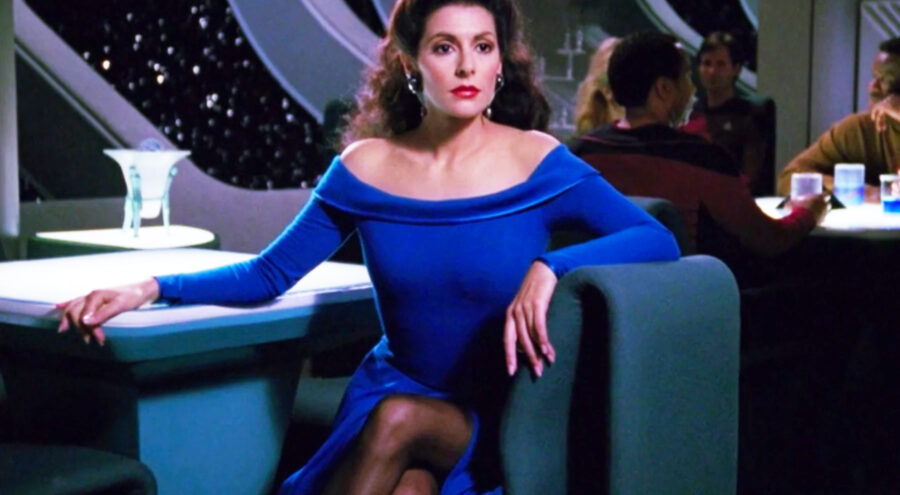
If Star Trek fans only had one word to describe Deanna Troi, they’d probably go with “emotions.” As a half-Betazed empath, Troi can pick up on the emotions of others, and as the ship’s counselor, she specializes in helping others get control of their own emotions. What makes this ironic, though, is that Deanna Troi was originally meant to be more like the least emotional character in the franchise: Spock.
Troi Was Meant To Be The New Spock
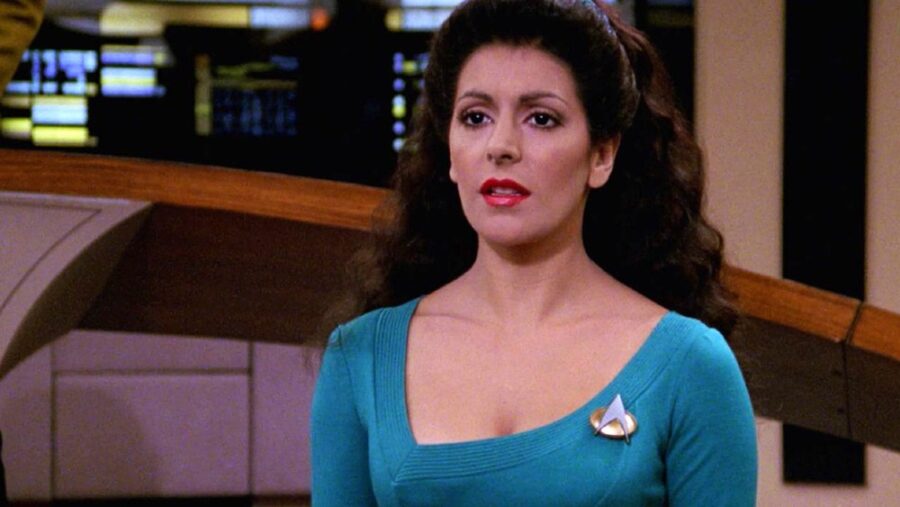
It’s worth remembering that when Star Trek: The Next Generation came out, there was nothing to compare to except The Original Series. It was helpful for writers and fans alike to be able to compare new characters to old ones, like “Riker is the new Kirk.” To hear Marina Sirtis tell the story, her character was meant to channel the wisdom of everybody’s favorite Vulcan: “She was supposed to have equal the intelligence of Spock.”
The Next Generation Was Always Meant To Be Its Own Series
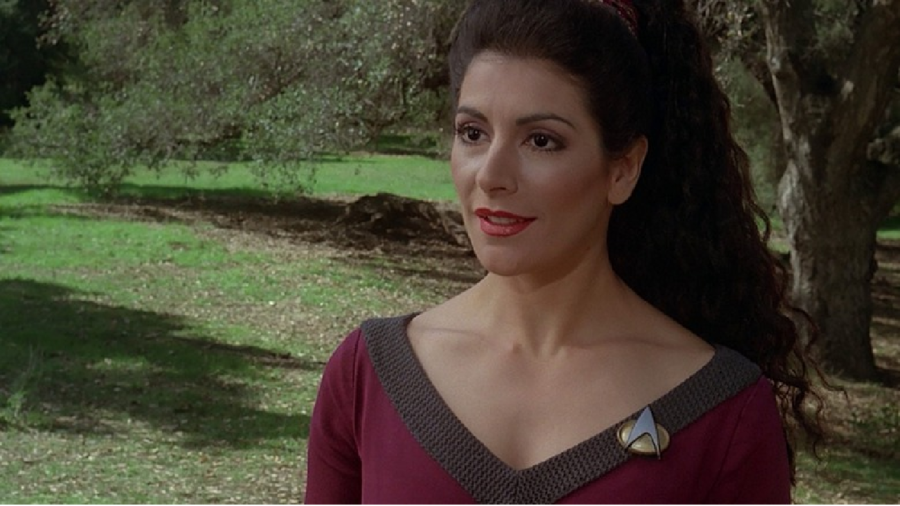
This statement has a certain bit of irony: in the early days of The Next Generation, Gene Roddenberry wanted to make the new show as different from the original as he could. That’s why it took so long to bring in Original Series elements like the Romulans as well as more extensive cameos from actors like Leonard Nimoy and James Doohan. In short, Roddenberry wanted Deanna Troi on the show to help make these new adventures seem very different than the adventures of Kirk and Spock.
Similar Character Traits Between The Two
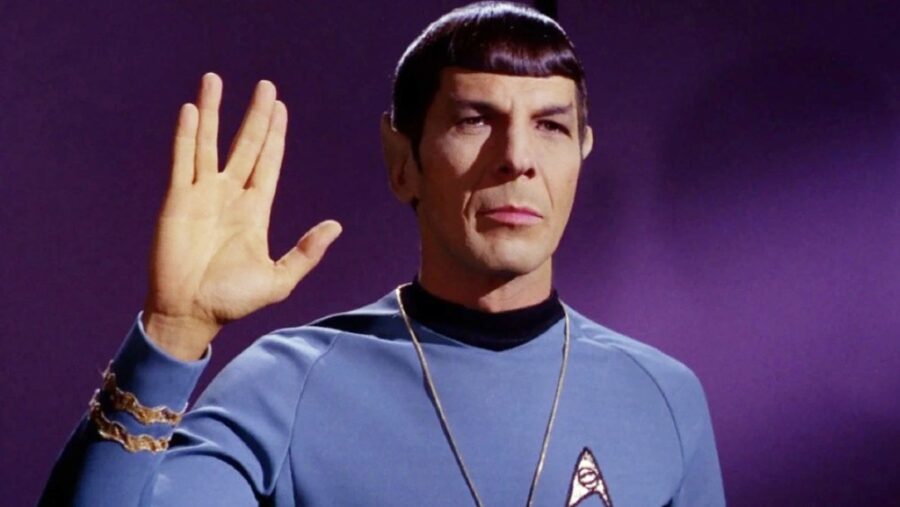
Weirdly enough, despite seemingly taking earlier pride in her character being like Nimoy’s character, Marina Sirtis later wanted to make comparisons between Deanna Troi and Spock, a thing of the past. “Some of Troi’s character traits may be similar to his but Troi is not a Spock clone,” Sirtis said. “She is a completely new character.”
The Influence Of The Failed Follow-Up
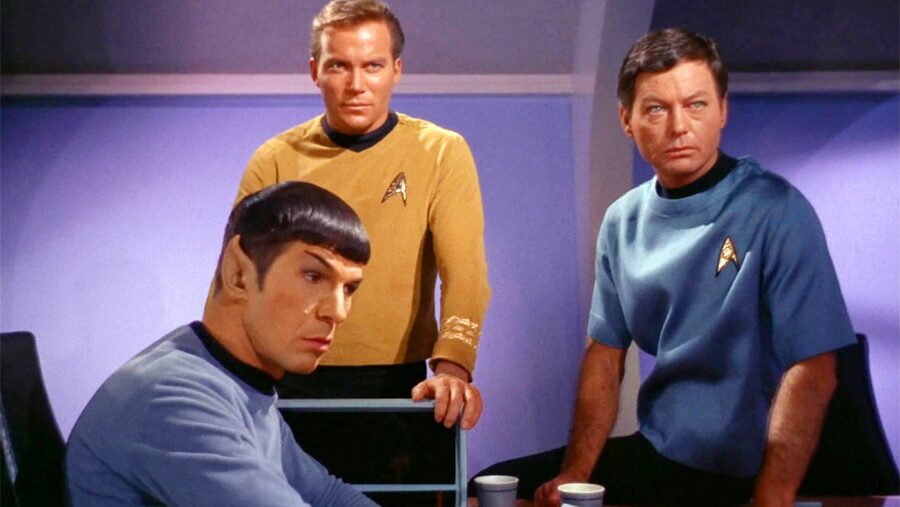
Some of the confusion over how much Deanna Troi would take after Spock has to do with who her real inspiration was. Before Star Trek: The Motion Picture, Gene Roddenberry was working on Star Trek: Phase II, an abandoned TV spinoff of The Original Series. That show was going to introduce an empathic character named Ilia, and when plans for the spinoff were scrapped, this new character was integrated into The Motion Picture.
Interestingly, that abandoned spinoff echoed through the early days of The Next Generation: not only were old scripts re-used, but old characters were used to create new ones. In this case, the empathic Ilia concept was used to create the Deanna Troi character, and her love interest, Commander Riker, was based on the concept of the young, rising officer Willard Decker. The latter influence is even obvious in the naming, with “Will Riker” and “Will Decker” sounding very similar.
Troi Became Her Own Character
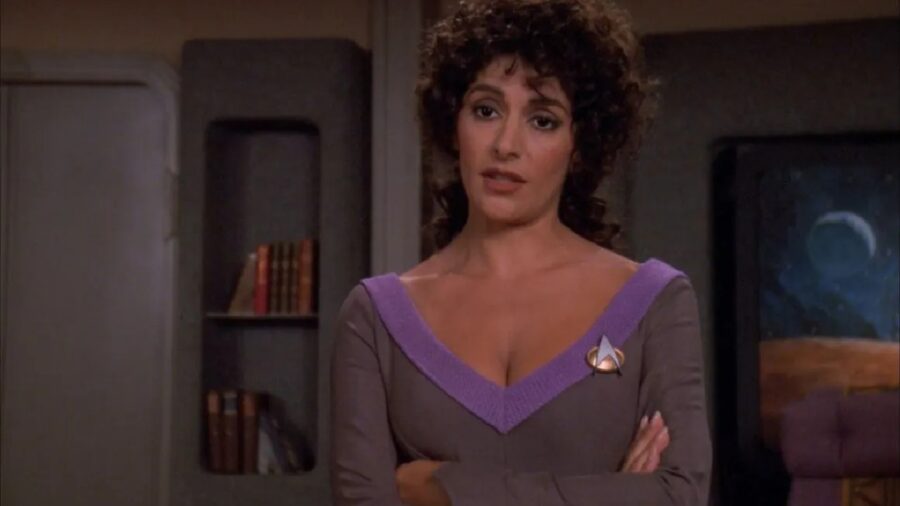
All of this is to say that Marina Sirtis was right and wrong: Deanna Troi could have easily had a Spock-like intellect if she was anything like Ilia, who bonded with V’Ger and shared in his vast intellect. At the same time, those early Trek writers wanted TNG to be very different from what came before, which is why Troi ended up being very different from both the famous Vulcan and the Ilia character she was most directly inspired by.
Essential To The Franchise
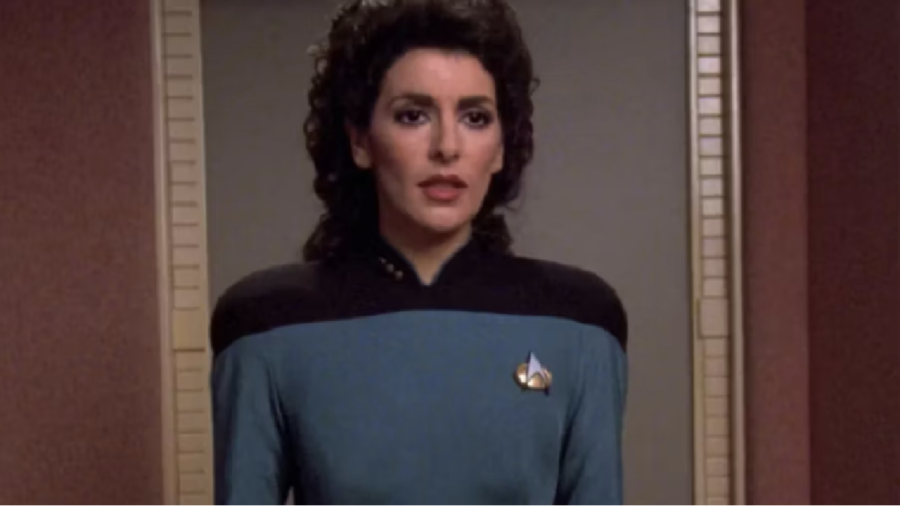
Ultimately, Sirtis lamented that Troi didn’t end up as “the brain on the show” so much as “the chick on the show,” but her character’s great emotional intelligence helped the counselor become a more distinct character over the years. Ironically, she grew beyond her emotions just as Spock eventually grew beyond mere logic. The two also share one more powerful connection: it’s completely impossible to imagine what their respective shows would be like without these unforgettable characters.












